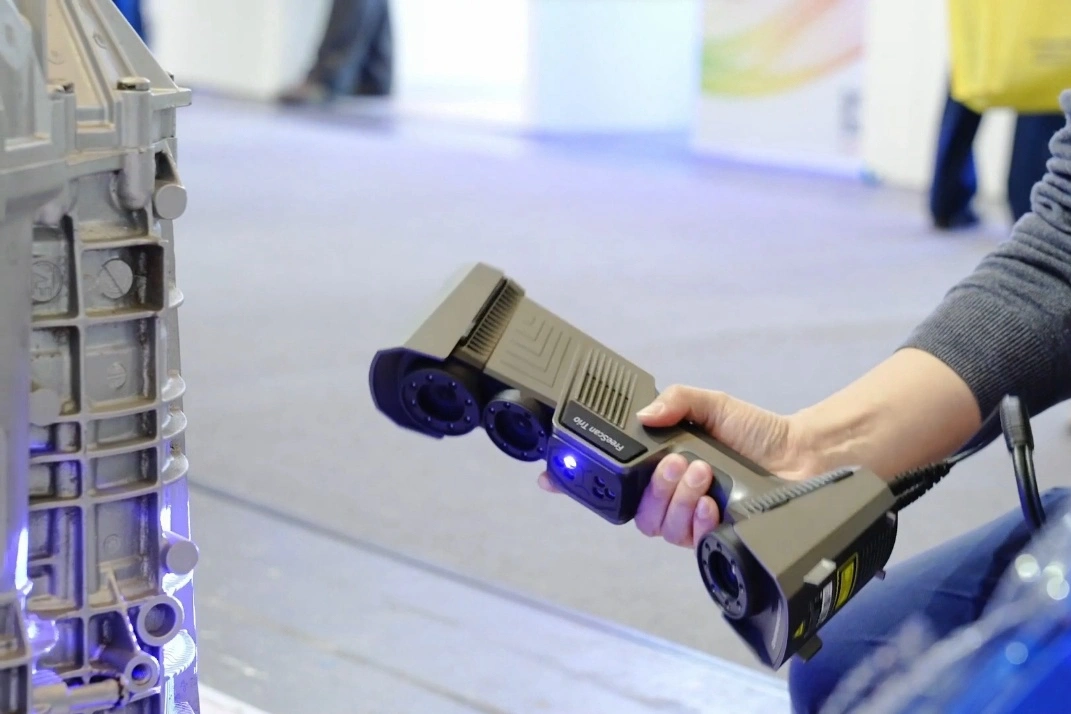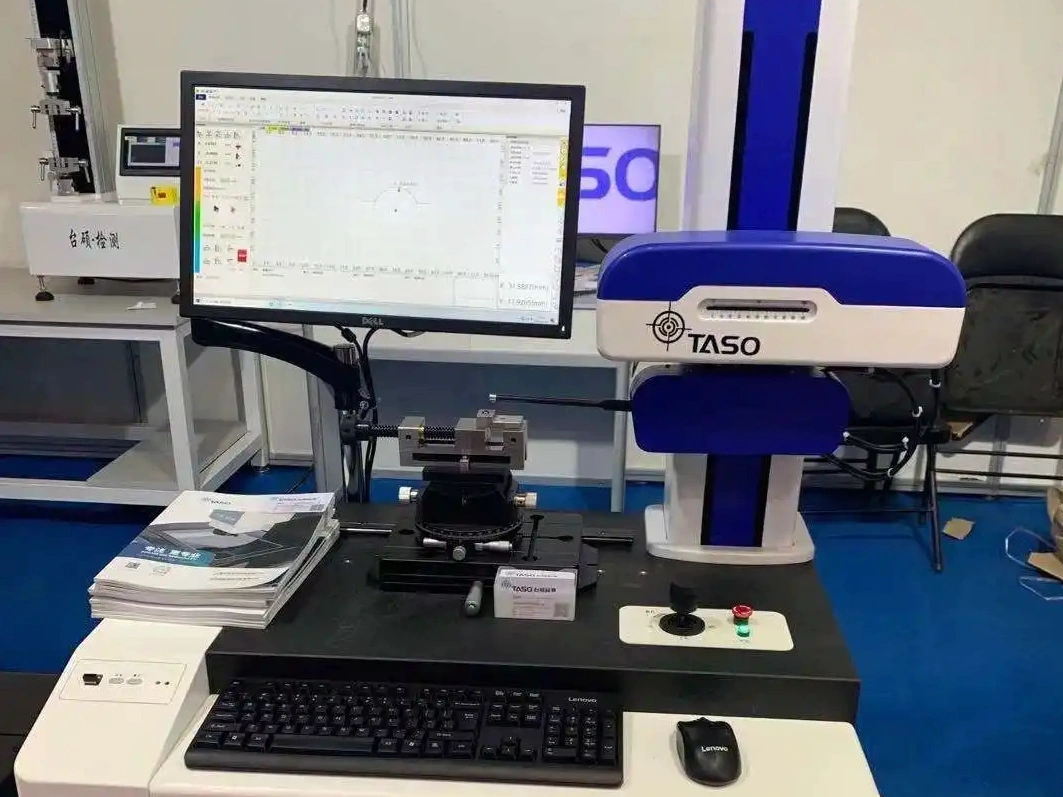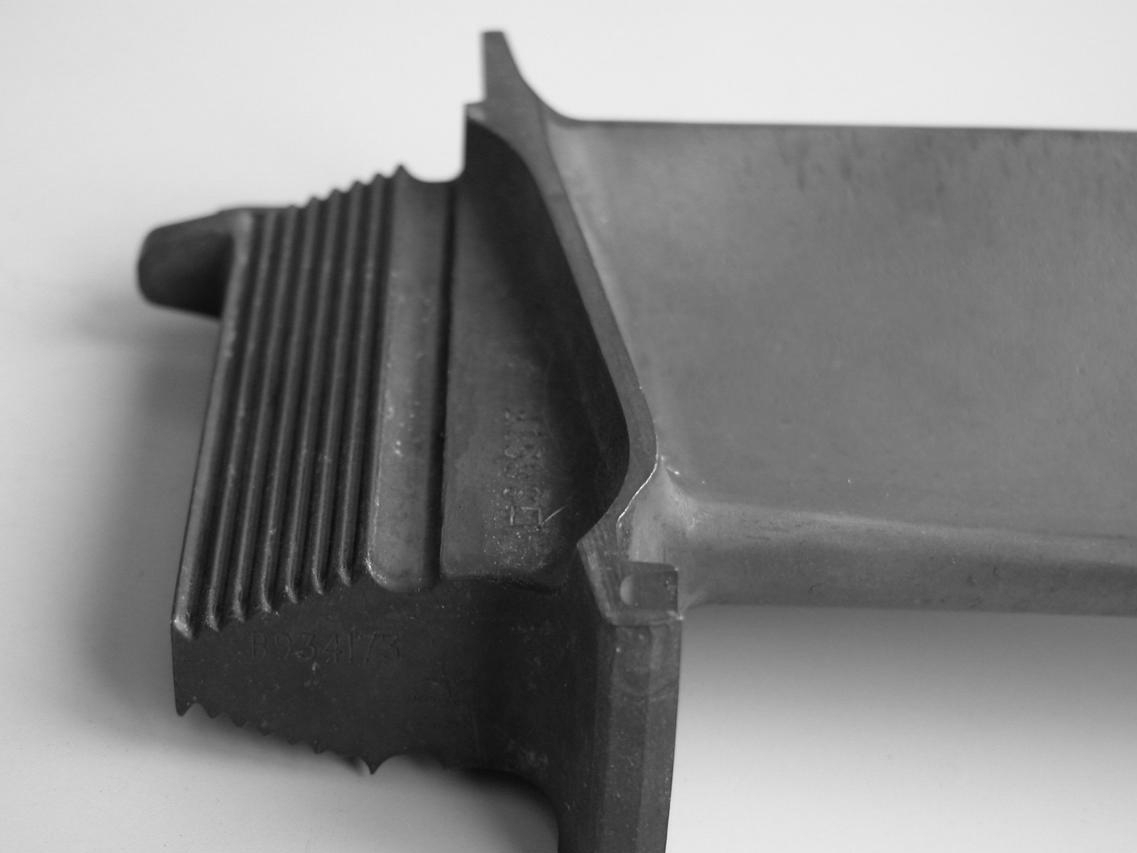Titanium TC4 CNC Machining for ABB Turbocharger Components
Project Background: High-Performance Turbocharger Rotor Housings
ABB required a lightweight, heat-resistant, and precision-engineered titanium component for its advanced industrial turbocharger systems. The component needed to withstand extreme rotational speeds, high thermal cycling, and corrosive exhaust gases. Neway was chosen to provide a full-scope CNC machining and post-treatment solution using TC4 (Ti-6Al-4V) titanium alloy.
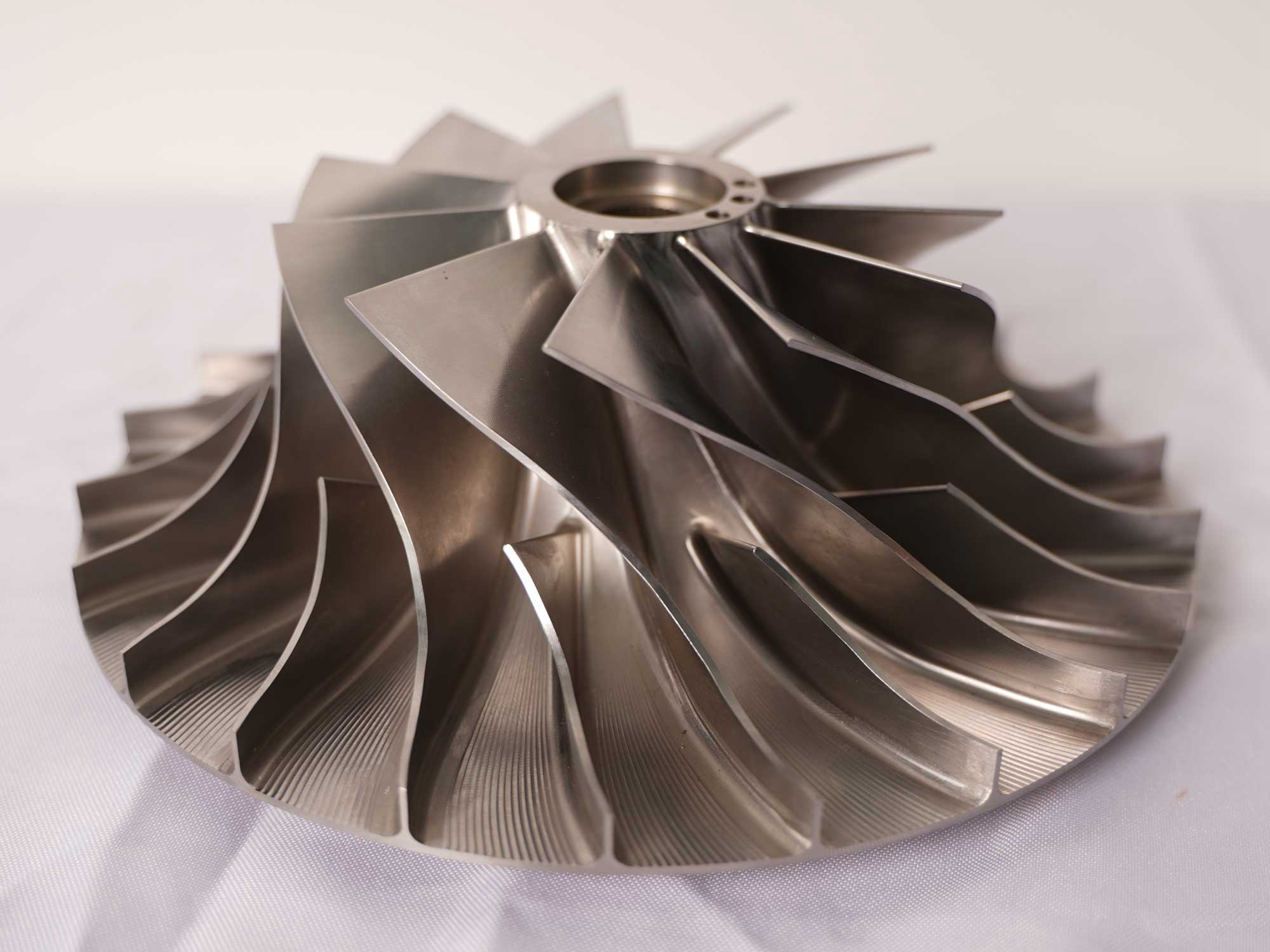
Why TC4 (Ti-6Al-4V) Was Selected for Turbocharger Applications
TC4 offers an optimal balance of mechanical strength, corrosion resistance, and thermal stability—making it ideal for aerospace-grade and high-performance turbocharger components.
Property | Value |
|---|---|
Tensile Strength | ≥895 MPa |
Operating Temperature | Up to 400°C |
Density | 4.43 g/cm³ |
Thermal Conductivity | ~6.7 W/m·K |
The alloy’s low weight-to-strength ratio and fatigue resistance are essential in turbocharger components. Learn more about TC4 CNC Machining.
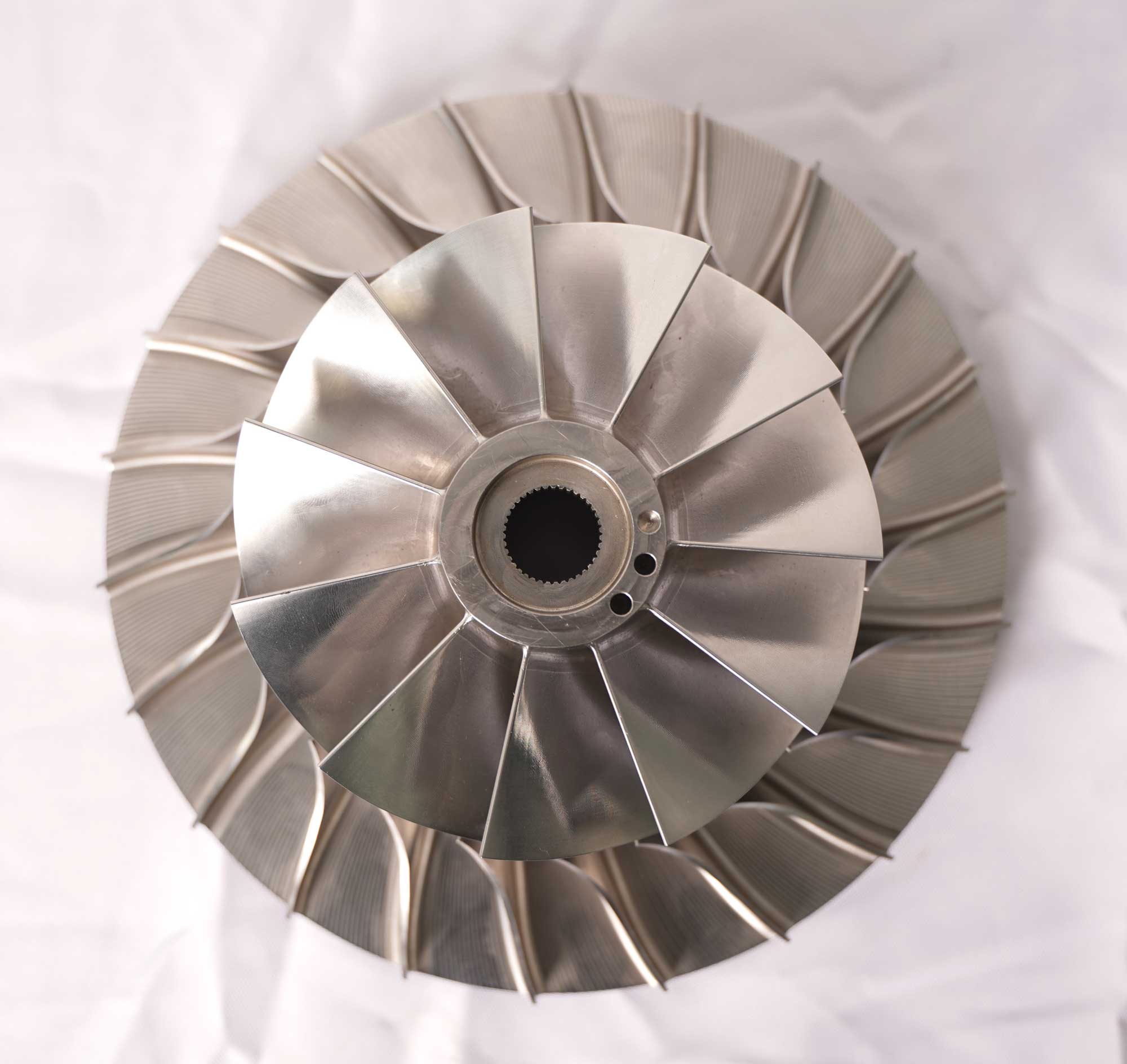
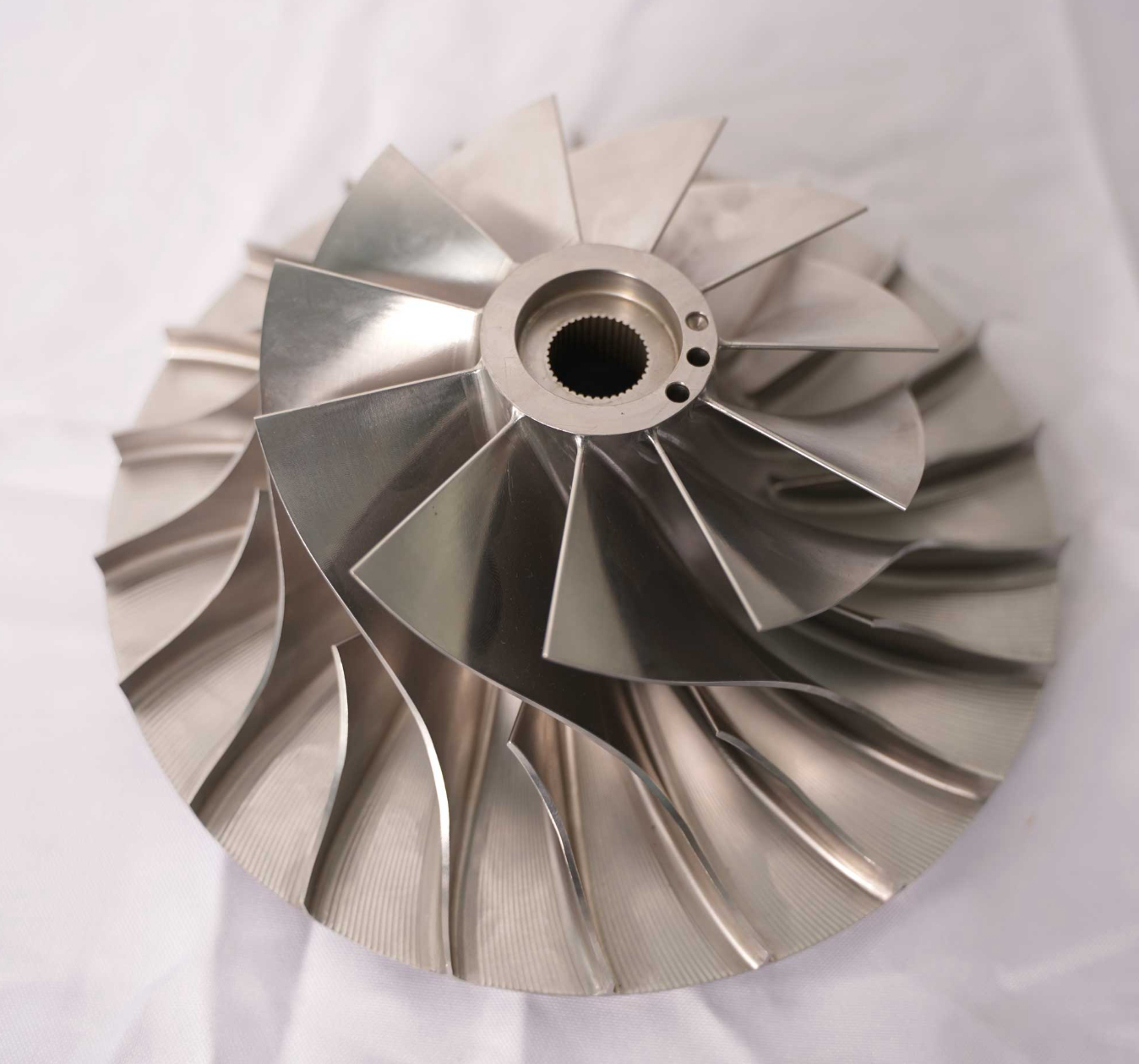
Machining Process Overview
3-Axis CNC Roughing
Initial bulk removal was performed using 3-axis CNC milling with carbide tooling and low cutting speeds to manage titanium’s work hardening characteristics. Roughing focused on external contours and cavity clearance.
5-Axis CNC Precision Machining
Multi-surface blade interfaces, internal vanes, and sealing grooves were completed with 5-axis CNC machining. Tolerances were held within ±0.01 mm, and true position accuracy was maintained across complex curved profiles.
Post-Processing and Surface Finishing
To meet ABB’s durability and fatigue requirements, the following treatments were applied:
Sandblasting: Achieved a matte finish (~Ra 1.4 μm) for better stress distribution and fatigue crack resistance
Heat Treatment: Applied stress relief annealing at 700°C for 2 hours to improve dimensional stability and reduce residual stress in critical load zones
Quality Control & Testing
CMM Dimensional Inspection: Verified blade interface profiles, concentricity, and flange positions within ±5 μm
Hardness Testing: Rockwell C-scale values confirmed material strength post-heat treatment
Surface Analysis: SEM inspection and roughness evaluation performed to validate sandblasting effectiveness
Production Results
Neway completed a pilot run of 600 units for ABB’s European turbocharger plant. Components passed thermal fatigue tests, dynamic balancing, and vibration integrity qualification. The parts demonstrated improved fatigue life and dimensional consistency across multiple heat cycles.
Why Neway for CNC-Machined Titanium Turbocharger Parts
Titanium CNC Machining Service: Specialized tooling and speed control for machining titanium without inducing thermal deformation
5-Axis CNC Precision Machining: Enables highly accurate multi-face processing of curved aerodynamic features
One-Stop Manufacturing Service: Integrated heat treatment, surface blasting, and inspection for full process reliability
FAQs
What are the typical tolerances achievable on TC4 turbocharger housings using 5-axis CNC?
How does heat treatment improve the fatigue life of titanium components?
What challenges are associated with CNC machining of Ti-6Al-4V?
Can sandblasting affect the surface integrity of high-speed rotating titanium parts?
How is titanium dimensional stability maintained during multi-step processing?
